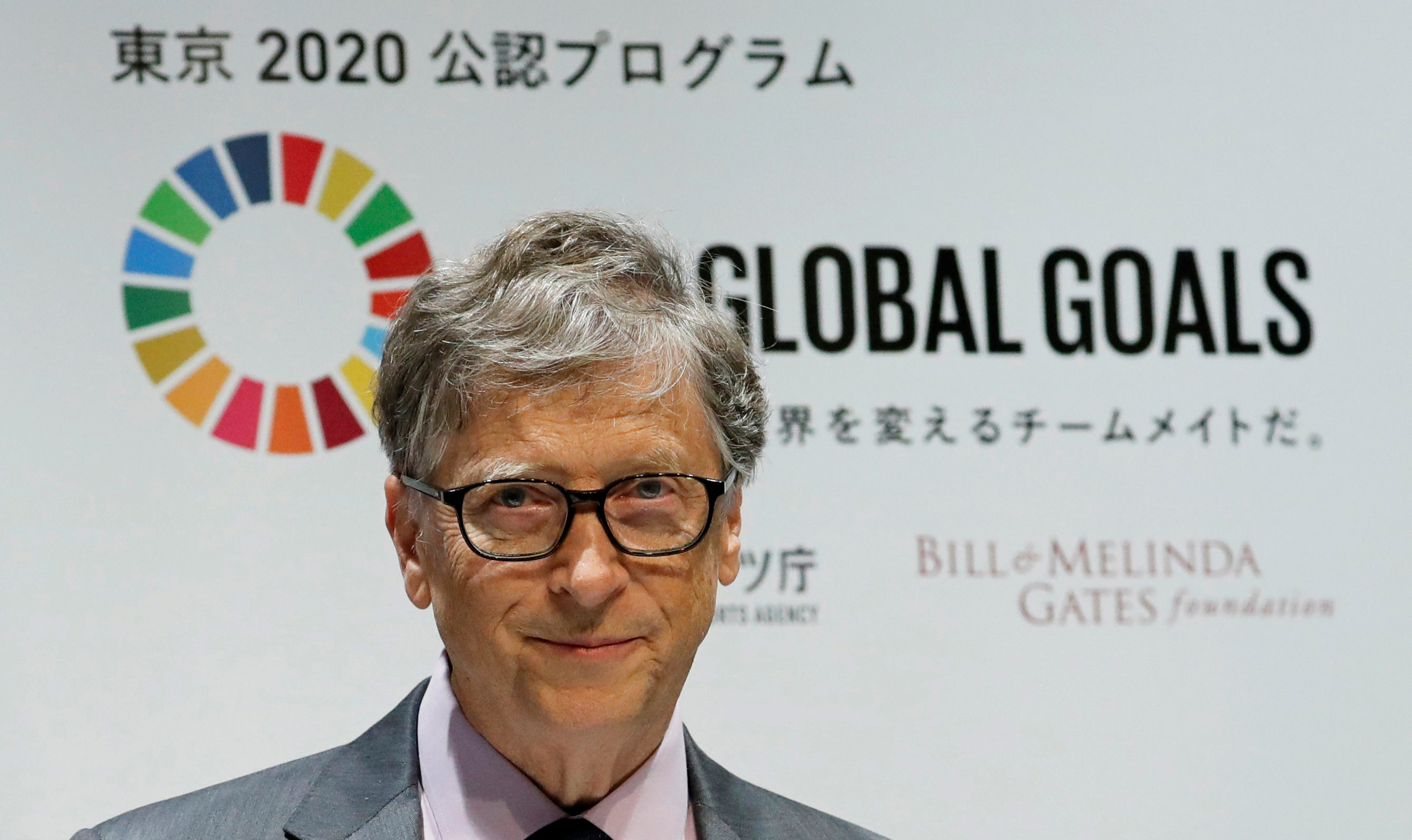Bill Gates: How HIV/AIDS prepared us to tackle COVID-19

Bill Gates has attributed halving HIV infections to the efforts of the Global Fund. Image: REUTERS/Toru Hanai

Get involved with our crowdsourced digital platform to deliver impact at scale
Stay up to date:
Global Health
Listen to the article
- Billionaire philanthropist Bill Gates says he is optimistic about beating coronavirus.
- He told a global AIDS conference that HIV/AIDS had shown how drugs could be made available fairly.
- He’s warning against poorer countries missing out if drug companies put profits first.
- The World Health Organization says more than 20 vaccines are undergoing clinical trials.
Around 2 million people a year used to die from HIV/AIDS. Now that figure has more than halved. So what changed?
Bill Gates is clear: the Global Fund – a worldwide philanthropic effort that spends more than $4 billion a year on fighting AIDS, as well as tuberculosis and malaria – was set up.
It’s why Gates, the co-chair of the Bill & Melinda Gates Foundation, told an International AIDS Society conference that he “remains optimistic” that COVID-19 can be defeated – because there is already a successful model for getting on top of pandemics.
However, Gates warns against letting vaccines go to “the highest bidder”, an outcome he says will cause a “longer, more unjust, deadlier pandemic”.
Benefits for AIDS treatments
Bill Gates thinks lessons from the AIDS fight can help defeat COVID-19, in particular teaching us about building “large, fair, global distribution systems”. But he says AIDS treatment programmes can actually benefit too.
“Better diagnostic tools are being developed to help identify these [coronavirus] infections. Investments are being made in libraries of antiviral drugs. Also we’re making great progress on vaccines.”
More than 20 vaccines are currently undergoing clinical trials according to the World Health Organization (WHO), with well-advanced studies in the UK and US showing encouraging results.
“These platforms won’t just be useful against this particular virus,” Gates says. “They will also help us specifically for HIV.”
What is the World Economic Forum doing to manage emerging risks from COVID-19?
Grounds for caution
Yet Gates doesn’t downplay the challenges that the global vaccination movement faces – particular from disruption to existing programmes.
In recent months, UNICEF has warned that more than 117 million children globally could miss out on measles vaccinations due to the suspension of immunization programmes. Meanwhile, the WHO cautions that malaria deaths in sub-Saharan Africa could double to 769,000.
And then there’s money. “If we just let drugs and vaccines go to the highest bidder, instead of to the people and the places where they are most needed, we’ll have a longer, more unjust, deadlier pandemic,” Gates says.
“We need leaders to make these hard decisions about distributing based on equity, not just on market-driven factors.”
As pharmaceutical companies race to develop successful vaccines, negotiations around pricing and intellectual property rights are likely to remain highly sensitive and contested areas.
But Gates’ overall message to AIDS campaigners – and the wider world – is one of hope. “The world has come together. Specifically, you have done it before.”
Don't miss any update on this topic
Create a free account and access your personalized content collection with our latest publications and analyses.
License and Republishing
World Economic Forum articles may be republished in accordance with the Creative Commons Attribution-NonCommercial-NoDerivatives 4.0 International Public License, and in accordance with our Terms of Use.
The views expressed in this article are those of the author alone and not the World Economic Forum.
The Agenda Weekly
A weekly update of the most important issues driving the global agenda
You can unsubscribe at any time using the link in our emails. For more details, review our privacy policy.
More on Health and Healthcare SystemsSee all
Victoria Masterson, Ian Shine and Madeleine North
July 25, 2024
Elisha London
July 24, 2024
Hamad Al Hammadi
July 22, 2024
Shyam Bishen
July 17, 2024
Shyam Bishen
July 15, 2024
Shyam Bishen
July 11, 2024









